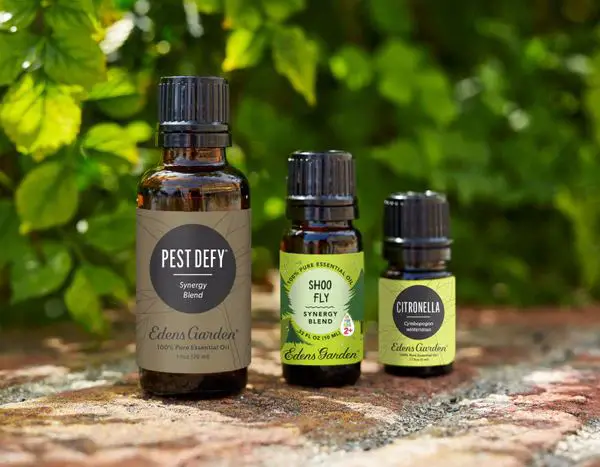Does Cedar Wood Oil Repel Bugs?
Cedarwood oil is an essential oil derived from various types of cedar trees, most commonly the Atlas Cedar (Cedrus atlantica). It has a rich history of traditional use dating back to ancient civilizations like the Egyptians and Sumerians, who extracted oil from the wood of the Cedar of Lebanon (Cedrus libani) [1]. Cedarwood oil has a warm, woody, balsamic aroma and has been used for spiritual and ceremonial purposes across many cultures. More recently, cedarwood oil has been prized for its purported bug and insect repelling properties. Many claim that cedarwood oil, when applied topically or diffused aromatically, can deter pests like moths, ants, cockroaches, and mosquitos from infesting households and gardens. The efficacy and scientific basis for using cedarwood oil as an insect repellent will be explored in this article.
Active Ingredients in Cedar Wood Oil
Cedarwood oil contains several active ingredients that have insect repellent properties. The main ones are thujopsene, cedrol, and widdrol.
Thujopsene makes up around 35% of cedarwood oil. It is known to have insecticidal and repellent effects against mosquitoes, ticks, and moths[1]. Cedrol comprises about 15-20% of cedarwood oil and also shows repellent activity. Widdrol is another major component at around 10-15% of the oil that likely contributes to repelling insects.
Overall, the combination of thujopsene, cedrol, widdrol and other active chemicals in cedarwood oil provide it with the ability to repel a variety of bugs and pests. The exact mechanisms by which these ingredients deter insects is still being researched.
Studies on Cedar Wood Oil as Insect Repellent
Several scientific studies have tested the efficacy of cedar wood oil as an insect repellent against various bugs:
A 2022 study by the USDA Agricultural Research Service found that cedarwood oil repels ticks, including the blacklegged tick which spreads Lyme disease. When applied to cloth, cedarwood oil provided 90-96% repellency against ticks for up to 3 weeks (source).
A 2022 study published in Pest Management Science tested cedarwood oil against bed bugs. At low concentrations, cedarwood oil was an effective repellent and insecticide against bed bug nymphs and adults (source).
A 2014 study found that cedarwood oil and its main component cedrol provided significant repellent effects against ants, ticks, cockroaches, and termites. Cedarwood oil was also toxic to ticks (source).
Overall, research shows cedarwood oil can effectively repel and even kill several types of insects when used properly.
How Cedar Wood Oil Repels Bugs
Research has shown that cedar wood oil repels insects through several mechanisms that deter them from landing or remaining on treated surfaces. According to studies by the USDA Agricultural Research Service, the primary components of cedarwood oil such as cedrol, cedrene, and himachalene have insecticidal and repellent properties.1 These compounds interact with insects’ odorant receptors and disrupt their ability to detect attractive scents like food sources or mates.2
Additionally, cedarwood oil can mask scents that draw insects like carbon dioxide in breath. By overpowering these attractant odors, cedar oil creates a barrier that makes it harder for insects to locate and land on skin or other surfaces treated with the oil.3 This avoids bites, landings, and the ability for insects like ticks and mosquitoes to attach themselves.
Furthermore, upon contact with cedarwood oil, insects detect the compounds as irritants. This triggers an avoidance response causing the bugs to quickly fly or crawl away from the treated area. The repellent effect can last for hours depending on factors like application method, dose, and exposure conditions.
Effectiveness Against Different Bugs
Research shows that cedar wood oil can be effective at repelling several types of insects, but its effectiveness varies by species. Some key findings from studies comparing cedar oil’s repellent effects include:

Mosquitoes: A 2017 study found that cedarwood oil provided complete protection from two mosquito species – Aedes aegypti and Culex quinquefasciatus – for up to 3 hours (source). Another study showed cedar oil repelled three species of mosquito for 2-4 hours (source).
Moths: Research shows cedarwood oil can repel several moth species, including clothes moths and the Indian meal moth (source). The strong scent masks the moth’s ability to detect food sources.
Ticks: Studies demonstrate cedar oil can effectively repel and kill ticks, including deer ticks, for 2-4 hours. One study found a 90% mortality rate in ticks exposed to cedar oil (source).
Fleas: Research shows cedar oil can repel fleas for up to 7 days. It disrupts the flea life cycle and egg hatching (source).
Overall, studies demonstrate cedar oil has moderate to high effectiveness against mosquitoes, moths, ticks, and fleas. More research is still needed on its effects on other insects like ants, roaches, and bed bugs.
Comparison to Other Natural Repellents
Cedar wood oil is often compared to other natural insect repellents made from plants. Essential oils like citronella, lemongrass, peppermint, and eucalyptus have also been studied for their bug repelling abilities. According to research by the USDA Forest Service, cedarwood oil was found to be an effective repellent against several types of ticks when compared to these other plant-based oils (source).
However, the effectiveness varied depending on the specific type of tick. For example, cedarwood oil performed better than lemongrass oil against lone star ticks, but lemongrass was more effective against Gulf Coast ticks. This indicates that different essential oils may be optimal for repelling certain insects. More research is still needed to directly compare and contrast the bug repelling capabilities of cedarwood versus other natural oils.
One advantage cedarwood oil has over citronella, lemongrass, eucalyptus, and peppermint is its pleasant aroma. Many people find the strong smell of these other oils to be overpowering. The mild, woodsy scent of cedar makes it easier to use both indoors and outdoors. Cedarwood oil also lasts longer before evaporating compared to more volatile herbal oils.
Overall, cedarwood oil can be an effective natural insect repellent, especially against ticks. But other plant-based oils have their own benefits and may outperform cedarwood for deterring certain bugs. Using a combination of essential oils can help maximize protection from different insects. More comparative studies are needed to determine the specific strengths and weaknesses of cedarwood oil versus other natural repellents.
Comparison to Synthetic Repellents
Unlike natural oils like cedarwood oil, most synthetic chemical repellents like DEET (N,N-diethyl-meta-toluamide) are made in laboratories. According to a USDA study, DEET was found to be more effective than cedarwood oil against certain pests like ticks. However, DEET has also been associated with some harmful side effects if overapplied or absorbed into the skin, especially for children.
Cedarwood oil is generally considered a safer option than synthetic chemicals, since it comes from natural wood sources. However, it may need to be reapplied more frequently than DEET for maximum effectiveness. Ultimately, consumers must weigh the pros and cons of DEET’s higher efficacy against the possible health risks and cedarwood oil’s gentler formula when choosing an insect repellent.
How to Use Cedar Wood Oil as Repellent
Cedar wood oil can be an effective natural repellent against bugs when used properly. Here are some effective methods for applying cedar wood oil:
Topical application – Mix a few drops of cedar wood essential oil with a carrier oil like olive or coconut oil and apply directly to the skin. This can help repel mosquitos, ticks, and other biting insects. Reapply every few hours for continued protection. https://www.wikihow.com/Mix-Cedar-Oil-for-Pest-Control
Spray – Make a spray by mixing 15-30 drops of cedar wood oil per ounce of water, along with a small amount of mild soap. Use this natural repellent spray on clothing, tents, picnic areas, and other surfaces. Reapply daily or as needed. https://cedarcide.com/blogs/guides/cedarwood-oil-kills-bugs
Diffuser – Use a cedar wood oil diffuser or place cotton balls with several drops of oil in closets, drawers, and other enclosed spaces to repel moths, spiders, roaches, and other household pests.
The effectiveness depends on proper dosage and application method for the type of pest. Always read and follow label directions for any essential oil product.
Limitations and Considerations
While cedarwood oil can be an effective natural insect repellent, there are some limitations and factors that impact its effectiveness:
Concentration – More concentrated cedarwood oil is often more effective. Diluting the oil too much can diminish its insect repelling properties. Using 100% pure cedarwood oil is ideal.
Method of Application – Applying cedarwood oil directly to skin or clothing is more effective than diffusing it in the air. The repellent needs to be in close proximity to repel insects.
Frequency of Reapplication – Cedarwood oil will need to be reapplied every 2-4 hours for continuous protection. Oils can absorb into the skin and evaporate off surfaces over time.
Environmental Factors – Heat, humidity, and water can all impact the effectiveness and longevity of cedarwood oil as a repellent. It may need more frequent reapplication in hot, humid climates.
Compared to synthetic repellents like DEET, cedarwood oil is often less effective and needs more frequent reapplication. It also provides a shorter duration of protection. However, cedarwood oil is non-toxic and safe for frequent use.
Conclusion
In summary, research shows that cedarwood oil does have insect and bug repelling properties. The active ingredients like cedrol and cedrene have been found to deter various insects through their strong aroma. Studies demonstrate cedarwood oil’s effectiveness against ants, cockroaches, mosquitoes, ticks, and other pests when used properly. It performs comparably to other natural repellents like citronella, peppermint, and lemongrass oils. While not as potent as DEET, cedarwood oil can provide a safer, natural alternative to synthetic insecticides.
However, cedarwood oil does have limitations. It must be reapplied frequently and works best alongside other integrated pest management techniques. Proper usage instructions should be followed to maximize effectiveness and avoid potential skin irritation. Overall, cedarwood oil can be a helpful natural repellent but may not completely protect against biting insects on its own. With reasonable expectations, it can be a useful part of a safe and eco-friendly pest control strategy.


